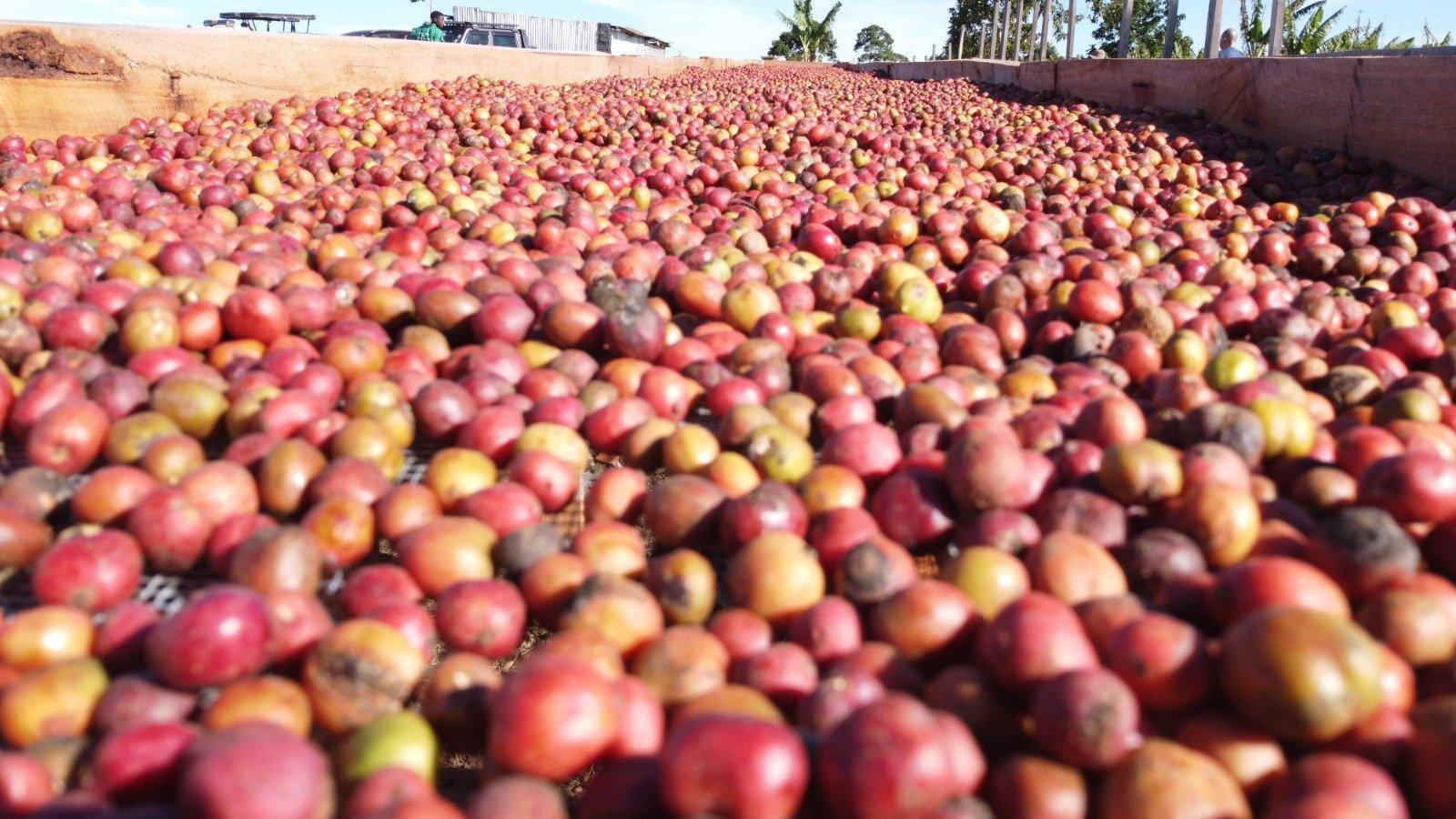Africa-Press – Uganda. Coffee farmers are grappling with a sharp decline in farm gate prices, driven by global market forces beyond their control.
From Ntungamo to other coffee-growing districts, farmers are earning far less for their produce than they did just two years ago, despite strong export volumes and high-quality yields.
According to a press brief released on June 27, 2025, by the Ministry of Agriculture, Animal Industry and Fisheries (MAAIF), the price slump is largely attributed to increased global coffee production, especially in Brazil and Vietnam, and improved weather in major producing regions.
At the national level, Robusta FAQ is currently trading between Shs10,000 and Shs11,000 per kilogram, while Robusta Kiboko fetches just between Shs5,000 and Shs5,500.
Arabica parchment is selling between Shs14,000 and Shs15,000, with Drugar at about Shs14,000. These prices represent a significant drop from previous years.
Agriculture minister Frank Tumwebaze explained that global oversupply has flooded the market, causing prices to fall.
“The weather conditions in Brazil have recently improved leading to increased harvest expectations,” he said.
“It is forecasted that Brazil’s coffee production will increase by 0.5% to 65 million bags in 2025/26, while Vietnam’s will increase from 29 million bags to 31 million bags.”
Market volatility has been further compounded by currency fluctuations, geopolitical uncertainty, and transport disruptions in key shipping corridors like the Red Sea.
These factors have all contributed to investor speculation and price instability.
Earlier this month, coffee farmers in Ntungamo District voiced frustration as prices plunged in the middle of a promising harvest.
A kilogram of fresh coffee that previously fetched Shs3,500 was selling for just Shs2,000, while dry coffee dropped from Shs8,000 to Shs5,500, and clean coffee from Shs15,000 to Shs12,000.
“The government should help out with stable prices because farmers are disappointed and stranded,” said Edson Rukundo, founder of Rukage Coffee Factory.
“Farmers are not bringing coffee to the factories, waiting for the prices to rise. This also hinders our work as factories.”
Ntungamo’s harvest season runs from April to mid-August, and despite improved drying and handling practices, the current market is offering little reward.
“We expected that now the coffee is well dried up, the prices should be increasing. However, we see the prices are still declining,” Rukundo added.
Charlotte Kemigyisha, communications manager at MAAIF, acknowledged the impact of international supply dynamics.
“The prices are determined by forces of demand and supply on the global stage, and the good harvest from Brazil plays a key role in this at the moment,” she said.
“For our Ugandan coffee farmers, we continue to encourage them to adhere to smart agricultural practices including post-harvest handling measures that will guarantee good quality and premium prices.”
In Ntungamo, coffee is more than a cash crop—it is a lifeline. Over 41,000 households depend on it for school fees, healthcare, and daily expenses.
The district has more than 116 coffee hullers and several factories across 34 local governments, producing both organic and conventional coffee.
“Ntungamo is the coffee industrial hub for the whole country,” said Ester Atwine, the district agriculture officer.
“We have the capacity. We have the coffee.”
Despite low prices, coffee farming is expanding rapidly in the district. The Inspire Coffee Africa industrial hub has sparked a wave of investment and land acquisition.
“People are all coming to invest in coffee with a minimum of two acres. Before, nursery operators would be stuck with seedlings waiting for the government, but now they are all booked,” Atwine noted.
She believes the situation, while painful, is not unprecedented.
“The price becoming low is not a threat. We used to sell a kilogram at even 1,000 shillings and farmers were earning. What matters is a person having what to sell… The moment Brazil solves its problem, the price will stabilise.”
Still, the impact on smallholders is severe.
“When the prices are low, it affects us because that’s our biggest source of income,” said Benon Mugisha, a farmer in Ntungamo.
He and others are calling for greater government support through extension services and training.
Atwine also warned of quality concerns as financial pressure leads some farmers to harvest prematurely.
“At times, farmers with children at universities don’t harvest coffee at the right time because of tuition pressure. They sell their coffee at flowering stage to commercial dealers and harvest it overnight. This affects the quality,” she said.
Despite the downturn, Uganda’s coffee export performance remains strong.
From June 2024 to May 2025, the country exported 7.43 million bags of coffee worth $2.09 billion—a 22% increase in volume and a 93.6% increase in value over the previous year.
Minister Tumwebaze urged farmers to remain calm and focused on improving quality.
“I call upon all coffee farmers to plant more and ensure good quality by adhering to best practices,” he said, adding that with harvests in India and Vietnam ending by mid-July, Uganda may see price improvements by late July or August.
“Uganda is now positioned as the third-best coffee producer in terms of quality,” he added, citing the Coffee Quality Institute.
The ministry assured farmers of continued government support in navigating the global challenges ahead.
For More News And Analysis About Uganda Follow Africa-Press






